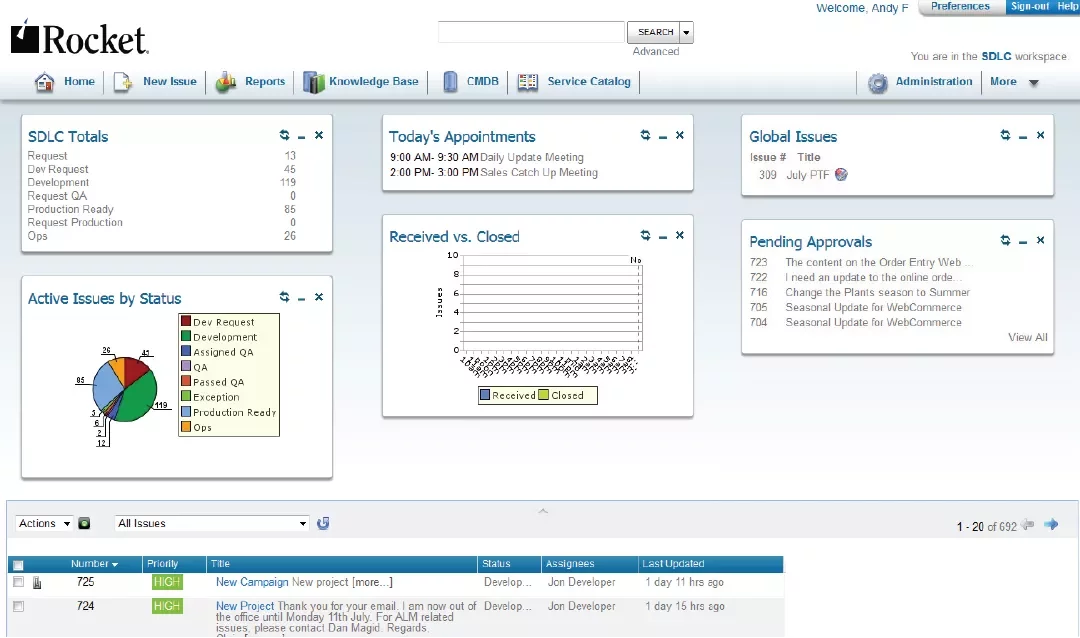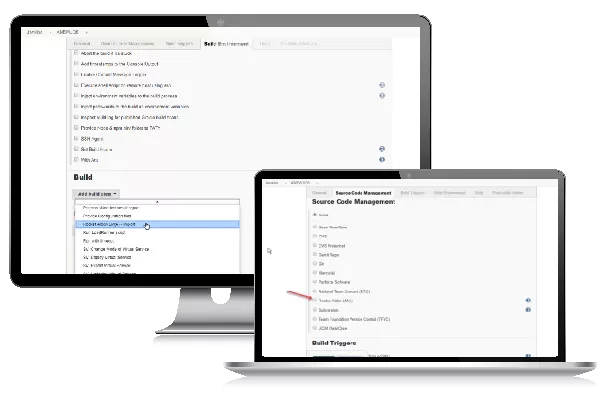Rocket® DevOps Enhancement requests and change management
Enable unified DevOps change management and integration with third-party tools
DevOps Enhancement Requests and Unified Change Management
Rocket® DevOps change management unifies software development processes with the inclusion of tools that document and manage enhancement requests and change requirements for RPG development. It tracks incoming change requirements and leverages automation to channel those requests to appropriate stakeholders, trace approvals, and access reports — all from a central, highly visible location.
Whether integrated with third-party tools like Jira, or by leveraging Rocket Community Manager, your IT or development teams work seamless with managers and stakeholders to scope changes, streamline development, and speed up delivery to enable agile and cost-saving development. Your IT and development teams can then also respond quickly to changes, implement best practices, and meet compliance regulations.

If using Rocket Community Manager, users can track multi-platform components through the DevOps process from within a tracked issue.
Integrate and utilize the best open-source third-party tools
Give your development team the tools they need to seamlessly build, test, and deploy, bringing your organization’s DevOps practice to the next level with unified DevOps change management and enhancement requests. Rocket DevOps readily integrates with the most popular development tools on the market, which includes:
Git and Apache Subversion
Development teams can use these popular version control tools to track and manage changes to source code in order to recall specific versions at any time. Both Git and Subversion integrate easily with automated building tools like Jenkins, Maven, Bamboo, and Ant.
JIRA
Our JIRA plugin allows teams to use this proven project management tool to collect enhancement and change requests, structure them into requirements, manage or track project execution, and report progress or success of DevOps development work.
Eclipse and Visual Studio
Rocket DevOps readily integrates with IDE solutions like Eclipse and Visual Studio, giving developers powerful tools they can use for editing, debugging and compiling code.
Jenkins
An automated build tool that enables developers to reliably build, test, and deploy software code on-the-fly. Teams can also test and deploy without waiting for other development work to be done, which is a core requirement for continuous integration/continuous deployment (CICD) DevOps environments
Source code can also be stored within the Rocket DevOps platform, with Jenkins monitoring the initiate builds of any application. Similarly, code can be stored in a Git repository while Jenkins monitors, builds the application, and imports the final build into the central Rocket DevOps repository. Teams can then manage deployment, security, testing and production environments, auditing, tracking, logging, and all the other ALM/DevOps functionality.
X-Analysis
Our plugin for X-Analysis, an analysis and productivity tool, provides visibility into DevOps processes. This simplifies developers’ understanding of how to manage, update and maintain their code, and allows DevOps teams to better see the impact of a change to the larger environment. It also offers a modern GUI that’s easy to use and comprehend. With X-Analysis, teams gain visibility into their Rocket DevOps environment and make smart decisions about their applications and code.
Supported environments
Leverage several popular environments with your Rocket DevOps solution, which include:
- Rational
- CA 2E
- Zend
- Oracle® JD Edwards EnterpriseOne
- JDA
- Infor System 21
- Lawson
